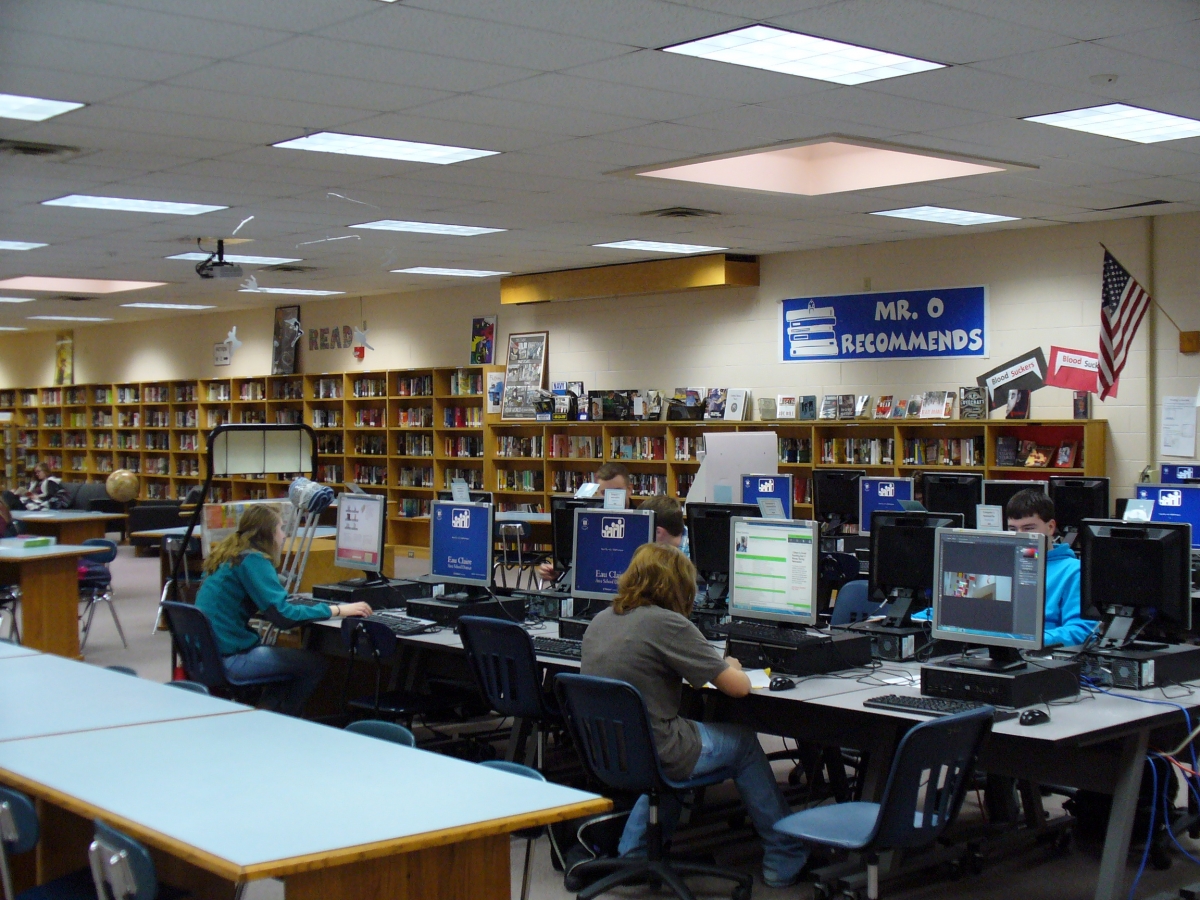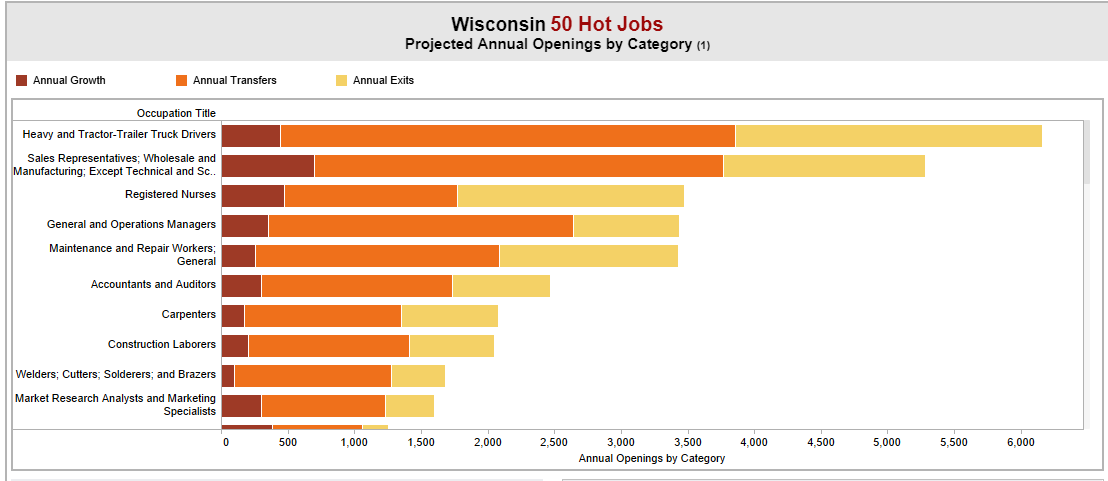Celebrate Library Workers Today!
DPI is proud to join Wisconsin libraries and library patrons in celebrating National Library Workers Day. In 2003, the American Library Association designated April 9th as a day to recognize the numerous invaluable contributions all library support staff and librarians make to facilitate lifelong learning in the communities they serve, according to the American Library Association’s website as of 4.1.19.
In 2017, Wisconsin public library patrons relied on the great work of 3,067 (full time equivalent) library staff members to deliver services at the 381 public libraries and 83 public library branches across Wisconsin. The 1,205 librarians who serve Wisconsin’s public libraries are joined by 1,861 colleagues working in other important roles.

Between 2012 and 2017, the total number of paid public library staff has increased by 1.2% from 3,032 in 2012 to 3,066 in 2017. During those five years, the patterns of public library use have changed. The number of program attendees has increased by 28%, from almost 2.1 million in 2012 to nearly 2.7 million in 2017. Use of local electronic electronic collections (databases) has increased by 84%, from about 1.2 million in 2012 to nearly 2.2 million in 2017. Source: DPI annual library statistics as shown on the DPI website 4.1.19.
837 licensed school library media specialists and another 1,040 unlicensed library staff members deliver comprehensive school library media programs in the 2,216 public schools that comprise Wisconsin’s 421 public school districts. Source: DPI All staff reports, as shown on the DPI website 4.1.19.
Library workers in public, K-12, academic and special libraries perform a mind-boggling array of services and activities to keep libraries well-stocked with new materials and old favorites, ebooks, online databases and streaming collections, maker spaces, multi-media rooms, and bustling with activities that vary according to the type of library.
Library workers include library media specialists licensed by the Department of Public Instruction, library directors also licensed by the Department of Public Instruction, youth and adult services librarians, library program aids, circulation staff, interlibrary loan staff, technical services experts, reference staff, information technology staff, security personnel, facilities maintenance and cleaning crews and more. They are all joined by a passion for and dedication to making lifelong learning resources and activities available to members of communities across the state. Public library staff offer genealogy workshops, memory cafes, book clubs, story times, lectures by authors, computer learning classes and job-search and resume review sessions.
School library media specialists and school library staff teach students digital citizenship and best practices for internet privacy and security, how to access and use appropriate digital and print tools, and how to create and share original content that reflects the diversity of Wisconsin. They act as school and district leaders in planning programs, services, and facilities that will meet the future learning needs of students, and they collaborate with school administrators, classroom educators, and parents to ensure that students have access to a well-rounded program that gives them individual choices in their educational experiences.

Countless librarians and dedicated library support staff make the excellent work of Wisconsin’s college, university, special, state agency, and medical libraries possible. Although I don't have data on the specific number of staff members working in those organizations, I want to be sure to recognize their important contributions to the learning needs of their patrons.
If you're heading to any type of library today, please consider taking a moment to give a shout out to the staff working there, or post a word of thanks on your favorite social media platform.
 Wisconsin Youth Services Development Institute
Wisconsin Youth Services Development Institute



